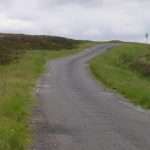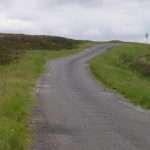Defend our communities
Speech at Cashel and Ossory Diocesan Synod on Wednesday, 19th October 2011 proposing a motion that the Church of Ireland engage with the discussions on the reform of the European Union Common Agricultural Policy.
At the beginning of Lent each year we encounter the story of Jesus’ temptations in the wilderness. The first temptation, the simplest, is that to turn the stones into bread. It is a temptation that meets with a sharp retort from Jesus, ’Man does not live by bread alone, but by every word that comes from the mouth of God’.
Jesus is saying that there is more to life than the material things, that there are things that cannot be bought; values, attitudes, emotions, that are as important as bread. It is worthwhile to return to these first principles, because what the Irish farming community is facing is a policy shift by the European Union that, in the name of reform, threatens to create a rural economy where profit is what matters, where the values of community that have been the very basis of Irish society are no longer considered important.
The proposals for the reform of the Common Agricultural Policy tabled last week, which include plans for flat rate payments, represent a trend towards fewer and bigger farms, which may be a rational move if one is an economist or a politician sitting in Kildare Street or in Brussels, but is money all that matters?
Fewer more viable, more profitable, more productive farms may be thought a good outcome, but what is the reverse side of that coin? Fewer farms means fewer people; fewer members of the local community; fewer customers for local businesses; fewer children in the local schools; fewer jobs for young people; a downward spiral begins as whole swathes of countryside become depopulated. A rural economy that is financially profitable, but is socially impoverished, is that what we want?
Man shall not live on bread alone; man cannot live by bread alone—we must recognize that we cannot organize our society merely on the basis of profit. The disastrous state of our economy should be lesson enough on what happens when we simply let market principles shape all our decisions. If we made our decisions merely on the basis of profit, most of our churches would be gone. We recognize that there is more to life than profit in our parishes, let us similarly recognize that there is more to life than profit when we consider our communities.
The Common Agricultural Policy, at its inception, embodied that Gospel view of the world; it was an acknowledgment that farming life was about more than just a profit and loss account sheet, that there were values that mattered that were other than just material ones:
Article 39 of the Treaty of Rome of 25th March 1957 declares:
1. The objectives of the common agricultural policy shall be:
(a) to increase agricultural productivity by promoting technical progress and by ensuring the rational development of agricultural production and the optimum utilisation of the factors of production, in particular labour;
(b) thus to ensure a fair standard of living for the agricultural community, in particular by increasing the individual earnings of persons engaged in agriculture;
(c) to stabilise markets;
(d) to assure the availability of supplies;
(e) to ensure that supplies reach consumers at reasonable prices.
Note the language used, it is the language of values, of aspirations: ‘rational development’, ‘a fair standard of living’, ‘reasonable prices’. The Treaty aspired to a rural society that was about more than just making a profit.
This diocese has a direct vested interest in defending our communities, without them we shall have no diocese in twenty years’ time! But we should not speak because we have a vested interest, we should speak because it is right to do so.
The Gospel for Saint Luke’s Day that we read at church yesterday included Jesus’ words that the labourer is worthy of his hire. Not having lived on a farm since 1967, it had been easy to forget the unrelenting labour faced particularly by small farmers. Slipping and sliding along a by road in the parish one day last winter, when the daytime temperature was around minus ten, I saw a farmer who belongs to one of our churches fixing hosepipes to a tank of water drawn by a tractor, he was bringing water to his cattle. It was the same day that someone had phoned to say that the official opening of the final section of the M7 had been cancelled because the main roads were too dangerous to travel. It was a day that spoke of the different worlds inhabited by those who make the decisions and those whose lives are affected; it spoke also of the extraordinary, unseen lengths to which our farming community must go to try to earn a living.
There has been no leadership from our bishops; they can find three days to talk about sex but can find nothing to say about changes that would affect the very fabric of rural Irish society.
I would ask that the Church of Ireland engage with our communities; speak for those whose future is threatened; speak for Gospel values; tell the Government and the European Commission that we cannot live by bread alone.



Comments
Defend our communities — No Comments
HTML tags allowed in your comment: <a href="" title=""> <abbr title=""> <acronym title=""> <b> <blockquote cite=""> <cite> <code> <del datetime=""> <em> <i> <q cite=""> <s> <strike> <strong>